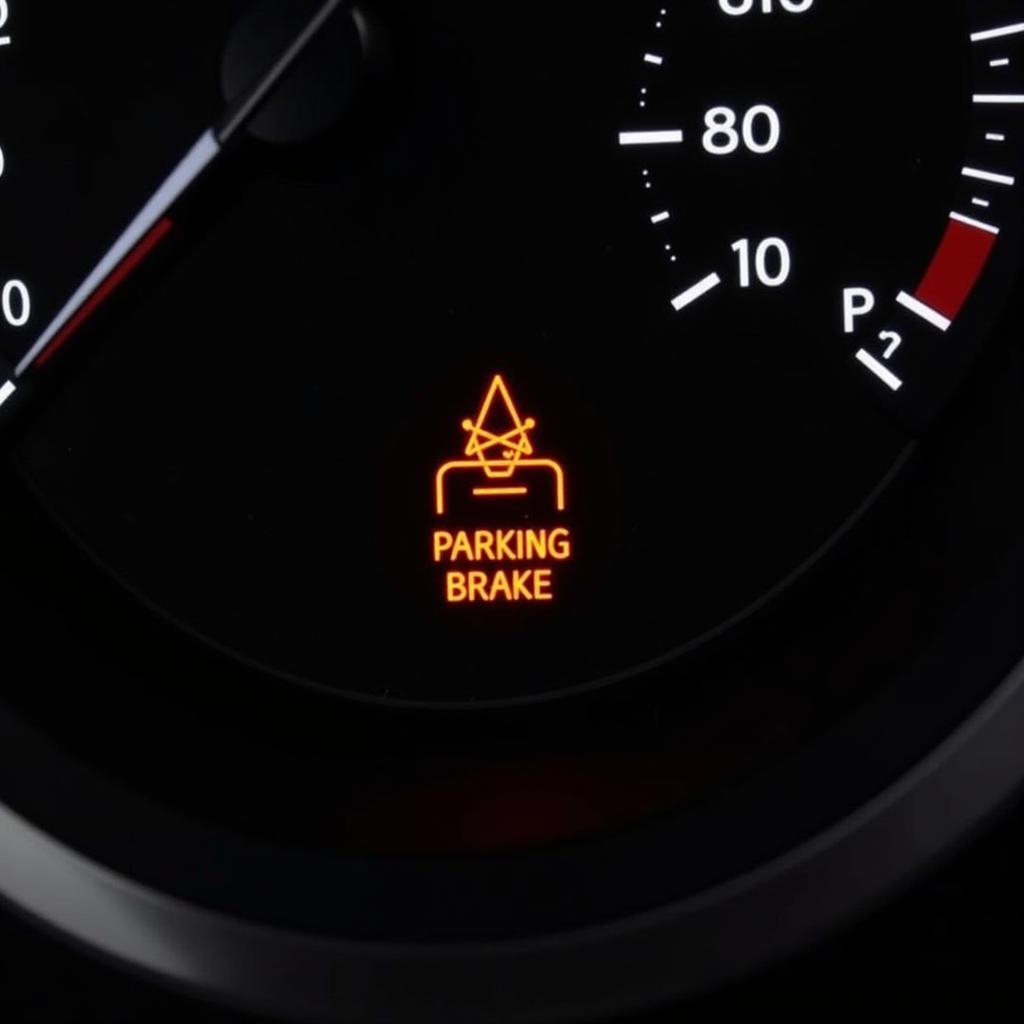The brake warning light on your dashboard is a crucial safety feature, designed to grab your attention if there’s an issue with your braking system. Seeing it illuminate in your 2004 Jeep Grand Cherokee can be unsettling, but don’t panic. This article will guide you through the common causes of this problem and offer potential solutions, helping you get back on the road safely.
Common Causes of a Lit Brake Warning Light
While a lit brake warning light can indicate a serious issue, it’s often something easily remedied. Here are the most common culprits:
1. Low Brake Fluid:
This is the most frequent reason for the brake warning light to turn on. Brake fluid, responsible for transmitting force to the brake pads, naturally depletes over time. If the level drops too low, the warning light activates.
2. Worn Brake Pads:
Brake pads, designed to wear down over time, have a wear indicator that triggers the warning light when they become too thin. This serves as a reminder to replace your brake pads before they compromise braking performance.
3. Faulty Brake Light Switch:
The brake light switch, located behind the brake pedal, signals the brake lights to illuminate when you apply the brakes. If this switch malfunctions, it can also cause the brake warning light to turn on.
4. ABS Issue:
While less common, a problem with your Anti-lock Braking System (ABS) can also trigger the brake warning light. This usually indicates a malfunctioning sensor or a problem with the ABS control module.
5. Parking Brake Engaged:
Sometimes the simplest explanation is the right one. Ensure your parking brake is fully disengaged, as leaving it partially engaged can trigger the warning light.
Troubleshooting Your Brake Warning Light
Here’s a step-by-step approach to help you diagnose the problem:
-
Check Your Parking Brake: Make sure it is fully disengaged.
-
Inspect Your Brake Fluid Level: If the fluid level is low, add the recommended brake fluid type for your 2004 Jeep Grand Cherokee. If the light remains on after adding fluid, there may be a leak requiring professional attention.
-
Examine Your Brake Pads: If you’re comfortable with basic car maintenance, you can check the thickness of your brake pads. If they appear worn down, it’s time for a replacement.
-
Consult a Professional: If the above steps don’t resolve the issue, or you suspect a problem with your brake light switch or ABS system, it’s best to take your Jeep to a qualified mechanic. They have the expertise and tools to diagnose and fix the problem safely.
What to Do When the Brake Warning Light Comes On While Driving
If the brake warning light illuminates while you are driving, it’s crucial to react promptly and safely:
-
Stay Calm: Panicking won’t help.
-
Reduce Speed: Gradually slow down and avoid sudden braking.
-
Pull Over Safely: Find a safe location to pull off the road as soon as possible.
-
Assess the Situation: If you suspect a brake fluid leak or other serious issue, do not continue driving. Call a tow truck to transport your vehicle to a mechanic.
Maintaining Your Brake System
Regular maintenance is key to preventing brake problems and ensuring your safety on the road. Here are some tips:
- Regular Brake Fluid Checks: Check your brake fluid level at least once a month and top it off if needed.
- Timely Brake Pad Replacement: Don’t ignore the brake warning light. Replace your brake pads as soon as they show signs of wear.
- Annual Brake Inspections: Schedule yearly brake inspections with a qualified mechanic.
Conclusion
A glowing brake warning light on your 2004 Jeep Grand Cherokee shouldn’t be ignored. By understanding the common causes, taking prompt action, and practicing preventative maintenance, you can ensure your braking system remains in top condition, keeping you and your passengers safe on the road. If you’re ever unsure about the source of the problem or the necessary repairs, consult a qualified mechanic.

